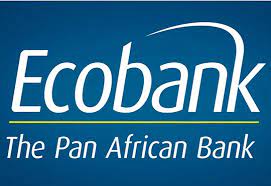Directors of Ecobank Transnational Incorporated, on Thursday presented its belated unaudited accounted for the nine months ended September 30, 2023, with double digit growth in top and bottom-lines, just as robust growth in balance sheet.
According to the result presented to the Nigerian Exchange Limited (NGX), gross earnings soared from N781.298bn to N1.21tr, representing a 59% growth; while interest income recorded 66% improvement from N485.862bn to N805.111bn; and interest expense up by 76% from N174.169bn to N306.504bn; resulting in a net interest income of N496.607b, compared to the N311.693bn reported in the corresponding period of 2022. The bulk of interest income was from customer loans and advances, which rose to N441.838bn, up from N259.818bn, followed by the N205.433bn earned from investment securities, up from N138.394bn.
Fee and commission income improved by 39% from N165.449bn to N230.154bn, the biggest line item being the N120.644bn earned as cash management fees, up from the previous N72.83bn; and credit related fees and commission of N58.032bn from the previous N44.724bn. Fee and commission expense growth was constrained to 11% from N23.363bn from N20.98bn, driven by the N15.349bn paid as other fees, up from N5.833bn; while bank charges gulped N6.969bn, down from N14.404bn.
Trading income recorded a 68% growth from N93.15bn to N156.443bn, helped by the N231.996bn translation gains less losses, an increase from N73.701bn, which was hampered by the negative transaction gains less losses of N66.284bn, compared with the previous positive N16.435bn; net investment income dropped marginally from N4.419bn to N4.012bn. Other operating income growth was equally subdued at N18.763bn from N16.683bn., driven significantly by the N11.957bn recovery, which rose from just N928.641m.
Impairment losses on loans and advances and other financial assets amounted to N131.705bn from N85.901bn, with impairment losses on loans and advances amounting to N94.169bn from N95.197bn, and recoveries rising to N45.736bn, a marginal increase from the previous N46.029bn.
Non-interest revenue improved by 49% from N256.722bn to N386.01bn; operating income improved by 55% to N884.617bn from N570.415bn; staff expenses was down 45% from N138.732bn in 2022 to N201.76bn; while depreciation and amortisation climbed 21% from N32.171bn to N40.738bn. Operating expenses closed at N475.352bn, after rising from N321.028bn; driven by other operating expenses which rose to N232.806bn from N150.124bn; and staff expenses of N201.76bn from N138.732bn. Operating profit before impairment charges and taxation rose 64% to N409.266bn from N249.387bn. Impairment charges on financial assets rose by 136% to N31.705bn from N55.901bn.
Non-conversion premium on bonds was nil, compared to N10.524bn in the previous nine months; resulting in operating profit after impairment charges before tax of N277.66bn, better by 52% from N182.962bn in the preceding period. Net monetary loss arising from hyper inflationary economies rose 7% from N14.422bn to N15.452bn; among others, driving profit before tax 55% up from N168.69bn to N262.17bn. Tax expenses for the period stood at N79.25bn to N61.279bn, representing a 55% increase, with corporate income tax of N74.254bn from N57.331bn, while deferred income tax dropped from N6.052bn to N4.996bn. This left net profit at N182.92bn from N117.411bn, representing basic earnings per share of N5.30 each, from N3.35 per share.
On the balance sheet, total assets jumped 55% up from N13.373tr to N20.696tr, with customer loans and advances accounting for N7.895tr, compared to the previous N5.073tr, representing a 56% improvement, while the value of investment securities improved from N3.229tr to N4.961tr. Total liabilities rose to N19.356tr from N12.439tr; the lion’s share of which was customer deposits for the period N14.928tr, which rose by 56% from N9.597tr to N14.928tr. This resulted in shareholders’ fund of N1.339tr, 43% better than the previous N934.656bn, including retained earnings amounting to N509.77bn, which was more than double the previous N292.391bn.
A breakdown of the figures by geographical entities showed that the bulk of net interest income came from the Anglophone West Africa (AWA) region (except Nigeria) at N179.264bn, up from N116.319bn, and the highest impairment charges on financial assets of N39.057bn, from just N9.401bn in 2022; followed by Nigeria with N168.105bn, compared to the previous N103.915bn; of which impairment charge stood at N16.112bn, from N14.63bn, as well as the highest contribution to profit after tax of N116.169bn, and improvement from the previous N63.062bn; while Central, Eastern and Southern, Africa (CESA) contributed N140.812bn up from N50.926bn.
Trending Today
Menu








